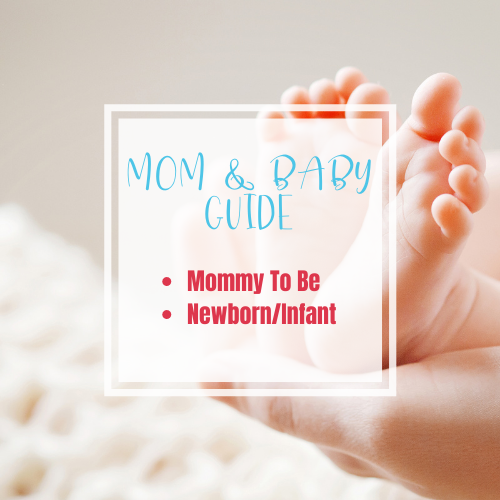In a world bombarded by diet fads, superfoods, and influencers touting the latest nutritional miracle, finding a straightforward answer to the question, "What should I eat?" can be bewildering. Yet the essence of nutrition isn't as complicated as it may appear. The key to optimal health often lies in the fundamentals—a balanced diet.
Let's unpack what that means, why it's crucial at any age, and address some widespread misconceptions along the way.
What is a Balanced Diet?
A balanced diet is a dietary approach that includes a variety of foods in the right proportions to provide the essential nutrients that your body needs for growth, repair, and healthy functioning. Imagine your diet as a colourful mosaic. It should have a variety of colours representing fruits, vegetables, grains, protein, and healthy fats. Each 'colour' in this mosaic offers a unique set of nutrients vital for your overall well-being and the absence of any of the colours would make the mosaic dull just like skipping any of the essential foods will make an incomplete diet.
In essence, a balanced diet is a nutritional regimen that aims to provide all the essential macro and micronutrients in the correct proportions to sustain optimal bodily functions.
Break Down the Elements of a Balanced Diet and Their Role in Maintaining Health
Carbohydrates
Carbohydrates are your body's primary energy source. Simple carbs like sugar can give a quick but short-lived energy boost. In contrast, complex carbs, found in foods like whole grains and vegetables, offer sustained energy. Aim for whole grains like whole-wheat bread, brown rice, and quinoa over processed grains to get the most nutrients and fibre.
Proteins
Proteins are the building blocks of life, literally. They contribute to the growth and repair of tissues. Sources include meat, fish, dairy, and plant-based options like lentils and chickpeas. Not all protein sources are created equal; it's essential to include lean meats and plant-based options that are low in saturated fats.
Fats
Ah, the most misunderstood nutrient! Fats are crucial for brain function, hormone production, and the absorption of certain vitamins. There are good fats and bad fats, which we'll discuss later.
Vitamins and Minerals
Fruits, vegetables, and animal products provide the vitamins and minerals required for various bodily functions, including immune system support and energy production. A colourful plate is often a sign that you're getting a wide range of these nutrients.
Fibre
Fiber aids in digestion and can help regulate blood sugar and cholesterol levels. Good sources include whole grains, fruits, and vegetables.
Water
Last but never least, water is vital for almost every function in the body, from temperature regulation to waste elimination.
Importance of a Balanced Diet as You Age
As we grow older, the saying "you are what you eat" gains new layers of meaning. Our bodies become less forgiving of poor dietary choices, and the protective mechanisms that may have shielded us in our youth start to wane. For example, the ability to absorb certain nutrients, like vitamin B12, can decrease with age, while the risk for various health issues, including digestive problems and chronic diseases, tends to rise. Therefore, maintaining a balanced diet is an investment in long-term health, supporting everything from cognitive function to emotional well-being.
At the same time, as we age, we often experience a decline in appetite due to changes in metabolism, sense of taste, and other physiological factors. This change can make malnutrition a hidden but grave concern. While younger individuals may be focused on diets for weight loss or muscle gain, older adults should pay special attention to diets that address nutritional deficiencies and chronic health issues. Foods rich in antioxidants, for example, can help fight off age-related oxidative stress, while potassium-rich foods can help manage blood pressure levels.
Another critical aspect to consider as you age is the role of healthcare insurance in nutrition management. Medicare Supplement Plans, also known as Medigap, can be invaluable in this context. These plans can help cover the costs of essential medical tests that check for nutritional deficiencies, food intolerances, or chronic conditions that may require dietary adjustments. Knowing your calcium levels, for instance, can guide you in boosting your dairy or leafy green vegetable intake to support bone health. To learn more about Medicare Supplement Plans follow the link given below:
https://www.medisupps.com/medicare-supplement-plans/do-all-doctors-accept-medicare-supplement-plans/
Misconceptions About Diets and Offer Science-Backed Recommendations
"Low-Fat" Means Healthy
Many people assume that "low-fat" or "fat-free" foods are better for them. However, these products often contain added sugar or salt to compensate for the loss of flavour, making them equally unhealthy in different ways.
Carbs are the Enemy
Carbs are not inherently bad. What matters is the type and quantity. Whole grains, fruits, and vegetables are excellent sources of complex carbs that your body needs.
Protein Overload
Some fitness enthusiasts swear by high-protein diets. While protein is essential, too much can lead to kidney stress and an imbalance of nutrients. A balanced approach is best.
Gluten-Free is Healthier
Unless you have celiac disease or gluten sensitivity, a gluten-free diet isn't inherently healthier and can lack essential nutrients found in whole grains.
Good Fats and Bad Fats
Good Fats
Monounsaturated and polyunsaturated fats, often labelled as "good fats," have received this accolade for good reason. These fats, found in foods like olive oil, avocados, nuts, and fatty fish such as salmon and mackerel, can have an anti-inflammatory effect on the body. They are crucial for absorbing fat-soluble vitamins like A, D, E, and K and play a role in brain health, hormone production, and even the modulation of mood. Omega-3 fatty acids, a type of polyunsaturated fat, are particularly lauded for their cardiovascular benefits. They can lower harmful LDL cholesterol levels, raise beneficial HDL cholesterol levels, and even reduce the risk of heart arrhythmias. Given these advantages, it's no wonder that healthcare practitioners often recommend incorporating these fats as part of a balanced diet.
Bad Fats
On the flip side, saturated fats and trans fats are termed "bad fats" due to their negative impact on cardiovascular health. Found predominantly in animal products like beef and full-fat dairy, as well as in fried foods, fast foods, and packaged snacks, saturated fats can raise levels of LDL cholesterol—the "bad" cholesterol. Elevated LDL levels are associated with an increased risk of heart disease. Trans fats, often listed as "partially hydrogenated oils" on food labels, are even worse. These industrial fats, created by adding hydrogen to vegetable oils to solidify them, not only raise bad LDL cholesterol but also lower the good HDL cholesterol. Both actions double the risk of developing heart-related issues. Regulatory agencies have cracked down on the use of trans fats in recent years, but they still lurk in many processed foods.
Conclusion
Maintaining a balanced diet isn't just about restriction or focusing on a single nutrient. It's about creating a harmonious blend of various nutrients your body needs to function optimally. As you age, this balanced approach becomes even more critical to ward off diseases and maintain a high quality of life. So the next time you find yourself confused by the latest diet trend, remember: a balanced diet is timeless, universal, and, most importantly, backed by science.








































No comments
We love hearing from you! Thanks for leaving us some comment love! If you're a new follower, please leave your link, so we can follow you back!